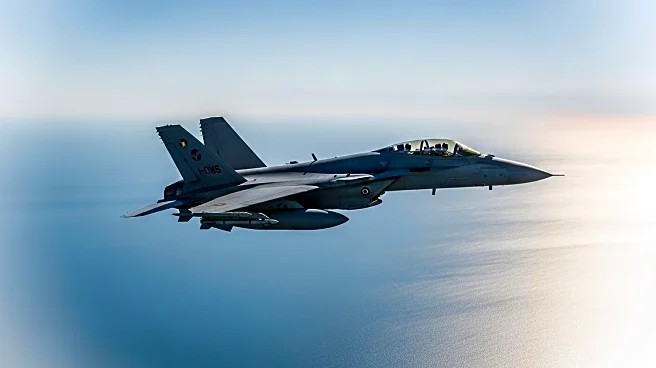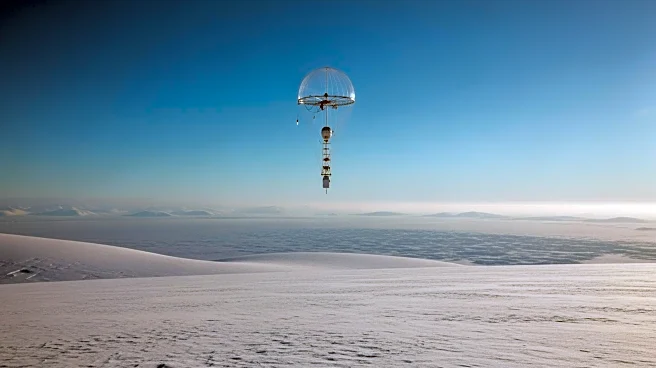What's Happening?
Two German Eurofighter jets were dispatched to intercept a Russian Il-20M reconnaissance plane over the Baltic Sea. The Russian aircraft had switched off its transponders and ignored contact requests, prompting Germany's air force to respond. This incident is part of a series of provocative acts by Russia, including violations of Estonian airspace by Russian MiG-31 fighters. Estonia plans to convene an emergency UN Security Council meeting, marking a significant escalation in regional tensions. Estonia's foreign minister described the actions as part of a broader pattern of Russian escalation, requiring an international response.
Why It's Important?
The scramble of German jets highlights the growing tensions between NATO and Russia, with potential implications for European security and NATO's strategic posture. The incursions are seen as tests of NATO's response capabilities and could lead to increased military readiness and diplomatic efforts to counter Russian aggression. The situation may influence U.S. foreign policy, as President Trump has expressed willingness to defend EU countries against further Russian aggression. The developments could impact NATO's unity and the security dynamics in Eastern Europe, affecting U.S. and European defense strategies.
What's Next?
Estonia is calling for an emergency UN Security Council meeting, and NATO members may increase defense measures in response to Russian provocations. The U.S. and other NATO allies could face pressure to enhance military support for Eastern European countries. Diplomatic efforts may focus on addressing security concerns and preventing further escalation. The UN General Assembly could serve as a venue for discussions on the issue, potentially influencing international diplomatic strategies.








